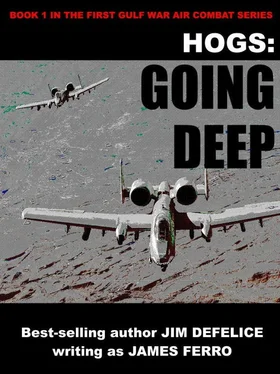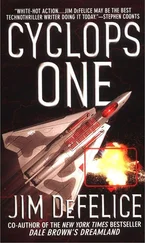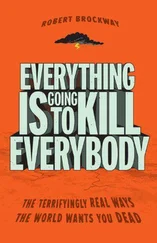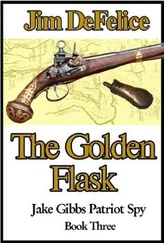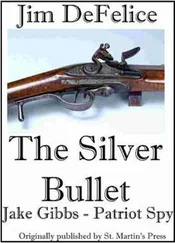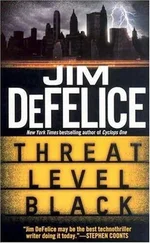In its place, he found one written in a shaky hand on unlined white paper, obviously labored over, with cross-outs and corrections.
Dear Serviceman:
I know what you’re going through. I served in the Second Marine Division on Okinawa. I won’t bore you with the details; you’ve probably read in your history books enough already. There isn’t anything that words can do about it, anyway. Things are always more important than you can say.
I hope that you will remember two things while you are over in Saudi Arabia.
Number one is, your family and your country love you. No matter what you hear. We had our Tokyo Roses, too.
Number two is, you will survive. No matter what happens. You will see a great many things. You will be changed. Some of the things that you find out about yourself, you will not like. Believe me, I know. When you see a buddy get shot and have to leave him there, screaming, etc., because if you moved, then you would be the next to die — that is the most horrible experience of all. But somehow, you get through it.
Remember that. Remember to keep your head up and moving toward the next battle.
I wish you the best. I know you will do very well. I know all of the men, and now I guess women too, will.
Make us proud.
Sincerely yours,
Lance Corporal
Frank L. Simmons (ret.)
Finished reading, Dixon stared at the letter a while, the shaky blue letters blurring into a haze. Finally he folded it and put it back into its envelope. He started to put it back in the pile, then stopped; he slid it into his pocket. Getting up from the cot, he told himself maybe having a drink wasn’t all that horrible an idea.
KING FAHD ROYAL AIRBASE
1900
Colonel Knowlington decided to help Wong find Doberman himself. Ordinarily, he didn’t like guys who worked in intelligence or for the joint chiefs, but this one had a quirky sense of humor that made it impossible not to.
“I have to confess that I don ’t know Captain Glenon all that well,” Knowlington told Wong as they wove their way toward the pilot’s quarters. “This unit has only been together a few weeks. But he’s a short guy, really short, and I’d be careful about his temper. Short guys always have quick fuses. Plus, he’s going to be tired.”
“I try to be professional at all times,” pronounced Wong.
Knowlington smirked. “See Captain, that’s what I’m talking about. You and I get the joke, but he might be a little sensitive, you know? Tread lightly.”
Now he got it. Knowlington realized that Wong reminded him of his first Phantom backseater, Jay Dalton, a snide-talking, sharp-eyed prankster whom he’d first met in the Philippines. Jay, a major at the time, was only so-so as an RIO, but a world class cut up. And he’d made general before he retired.
“This is his tent,” he announced. The lights were on, but he held Wong back. “Have to knock first.”
“Colonel?”
“Knock, knock,” Knowlington announced in a loud voice. “Hey Doberman, you decent?”
“Go away,” growled a voice inside.
Knowlington winked, then led the way. Major Johnson was sitting on a camp chair across from Doberman, who had his arms over his eyes, trying to block out the light.
“Tommy, I got somebody here from Black Hole who wants to talk to you about the missile you took in the wing.”
“Aw fuck,” growled Glenon. “Can’t anybody see I’m sleeping?”
“Wong’s a good guy,” said Knowlington. “He won’t take long.”
“Why are you here?” asked Johnson.
“Who are you?” said Wong.
“Oh, excuse me. Major Johnson, Captain Wong,” said the colonel, making the introductions. “Mongoose is the squadron’s director of operations. He led the flight.”
“I’ll want to talk to you, too,” said Wong. “But I would prefer to do this one at a time to avoid interview contamination.”
Knowlington started to laugh. “Come on, Mongoose. I want to talk to you about something. We’ll be outside,” he told Wong, adding, to no one in particular. “He’s a pisser, isn’t he? Interview contamination. Shit!”
* * *
“Don’t get up,” Wong told the prone figure on the cot.
“I wasn’t planning on it.”
“Your name is Doberman or Glenon?”
“It’s Glenon. Doberman’s just what they call me. After the attack dog?”
“Oh.” Wong sighed. He had never understood what the deal was on pilot’s nicknames. “Okay, now, tell me what happened.”
“When?”
“When the alleged missile hit you.”
“Go take a look at my plane if you don’t believe me.”
“Please, Captain, I have a job to do. From the point you were fired on.”
“You’re not taking notes?”
Wong shook his head. “I don’t think it will be necessary.”
The pilot described a low-level cannon attack, pretty much as the weapons expert expected. It sounded to him particularly careless, especially in light of the declaration that low-threat tactics — medium altitude bombing — were to prevail in theater. But he wasn’t here to offer a critique.
“Okay, Captain,” he said when the pilot began describing his egress toward Saudi Arabia. “Now, why are you calling the missile an SA-16?”
“Because that’s what hit me.”
“With all due respect,” Wong said, “you’ve just described an SA-7. Think about it. You were below a thousand feet, you — ”
“I know where the fuck I was. And I know what hit me.”
“There’s no need to use profanity, Captain. Did you see the missile actually go through the wing?”
“Now how the fuck would I do that?”
“Did you see the missile at all?”
“Of course not. But it had to be an SA-16. There’s no way in the world a fucking SA-7 is going to survive all that jinking. No way.”
“Are you sure there wasn’t a second missile?”
“From where?”
“The ground.”
“Give me a break, would you?”
“Are you sure you were able to perform the maneuvers precisely as you remember?’’
“Hey screw you, okay?”
Wong sighed. Patiently, he began to explain how important his investigation was to the war effort, how critical it was for other pilots to know what sorts of defenses they were facing so they could adjust their tactics accordingly. Realizing he was dealing with someone who was tired, the captain consciously chose words with the least number of syllables possible to convey his meaning. He had gotten through the first half of his first sentence when the pilot interrupted him.
“What the fuck do you know about missiles?” demanded the pilot.
“I know a great deal about them,” said Wong. “I’ve written three papers and… ”
“Go write another one and let me sleep.”
* * *
“What’s that all about?” Mongoose asked Knowlington as soon as they were outside the tent.
“Some jerk in Riyadh doesn’t think Saddam has SA-16s. Wong has to prove them wrong. We went through this shit in Vietnam,” Knowlington added. He kicked himself as that slipped out, but was powerless to stop the words.
“Whatever hit him wasn’t an SA-7. It stayed with him too long.”
“Yeah, Wong’s on it. Don’t let his deadpan fool you.”
Johnson frowned, giving off a hint of disapproval but saying nothing. Talking to him, Knowlington always felt as if he had to justify himself.
He felt that way with a lot of people, actually; it was just more acute with Johnson.
“You wanted to talk about something?” the major asked.
“Apparently our eastern GCI site is still on the air.”
“Yeah, I know.” Johnson’s voice had an edge to it, as if Knowlington was accusing him of screwing up. He wasn’t.
Читать дальше
